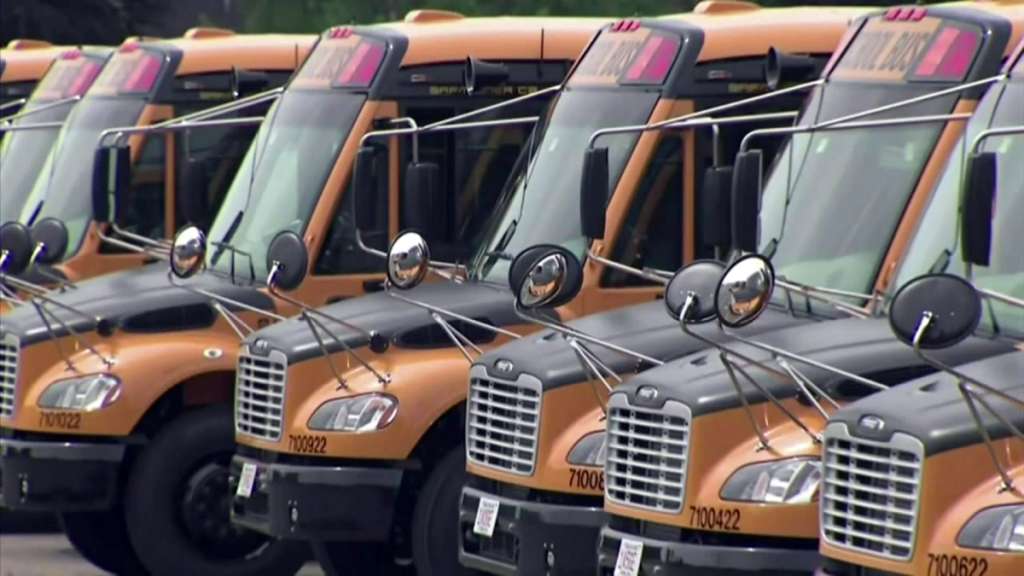A lack of viable transportation options prevents many students in rural Massachusetts school districts from participating in extracurricular activities, vocational and technical education, and early college programs, experts said Thursday.
Tasked with recommending ways to boost the financial stability of rural schools, members of a legislative panel warned that funding challenges and lower population density make it difficult for some districts to move students with special needs or students whose schedules fall outside the typical school day.
Rep. Natalie Blais, the special commission’s House chair, recalled that she once sat in on a bus ride alongside a student from Chesterfield to Hampshire Regional High School in Westhampton. Chesterfield is roughly 10 miles away from the school, but Blais said if the student stayed for any extracurricular activities, he would have had to return on a late bus that only went to the town center.
“The late bus dropped him off in the middle of Chesterfield, and it was another half an hour walk to get to his home, often in the dark along a road that wasn’t lit,” Blais said during the commission’s virtual meeting. “He ended up not participating in a number of after-school activities because it just wasn’t feasible for him to do and it wasn’t safe.”
“He expressed that sense of loss to me, and it was something that stuck with me all of this time,” she continued. “It is being felt by each and every one of (our students) in each and every one of these districts.”
Members floated several ideas to address transportation issues, such as creating a pre-qualified list of providers for rural districts or appropriating additional funds to rural districts for the purchase of handicap-accessible vans they can run themselves.
Ellen Holmes, board president at the Massachusetts Association of School Committees, said empowering districts to purchase vehicles and offer more transportation themselves rather than using contractors would “facilitate special ed students as well as regular ed students being able to access vocational technical opportunities, co-curriculars, and early college access at our commonwealth’s community colleges.”
“We have some phenomenal programs that are established, but it’s the ability to get from point A to point B being the community college and back again that becomes prohibitive for some students and their families,” Holmes said.
Commission members flagged other transportation-related issues that they believe pose obstacles to education, including regulations surrounding rides for special education students.
Holmes said the panel should reconsider state-mandated limits on how long special education students can be in transit during the school day to recognize “the complete transformation of traffic patterns from the inception of the original plan years ago that set those time restrictions.”
Another issue some districts face is a shortage of qualified drivers, a topic in the spotlight this week after districts such as Boston faced delays during the first day of school because of insufficient available buses.
Calling driver availability “a real issue for transportation,” Department of Education Associate Commissioner of School Finance Jay Sullivan said Thursday that some districts such as Worcester are pivoting to hire drivers directly rather than use contractors to provide student transportation.
“They don’t seem to think they’re going to have a problem recruiting drivers because they feel the benefits city employees have outweigh what they’ll get from a contract vendor,” Sullivan said. “That might be one incentive, and that raises the issue of possibly having capital funds available to municipalities that want to do their own busing.”
The group, created in the school funding reform law Gov. Charlie Baker signed in November 2019, is charged with examining the unique challenges that rural districts in Massachusetts face linked to their lower population density and enrollment fluctuations.
Members are exploring several angles for potential reforms beyond transportation, including the state’s school funding formula and the role of technology.
Sen. Adam Hinds, the commission’s Senate co-chair, said Thursday that he hopes to finish subcommittee discussions and analysis by November, then draft its final report for submission by March 2021.
The commission will participate in a “listening session” alongside some rural districts on Sept. 23 to collect additional feedback.
(Copyright (c) 2024 State House News Service.

